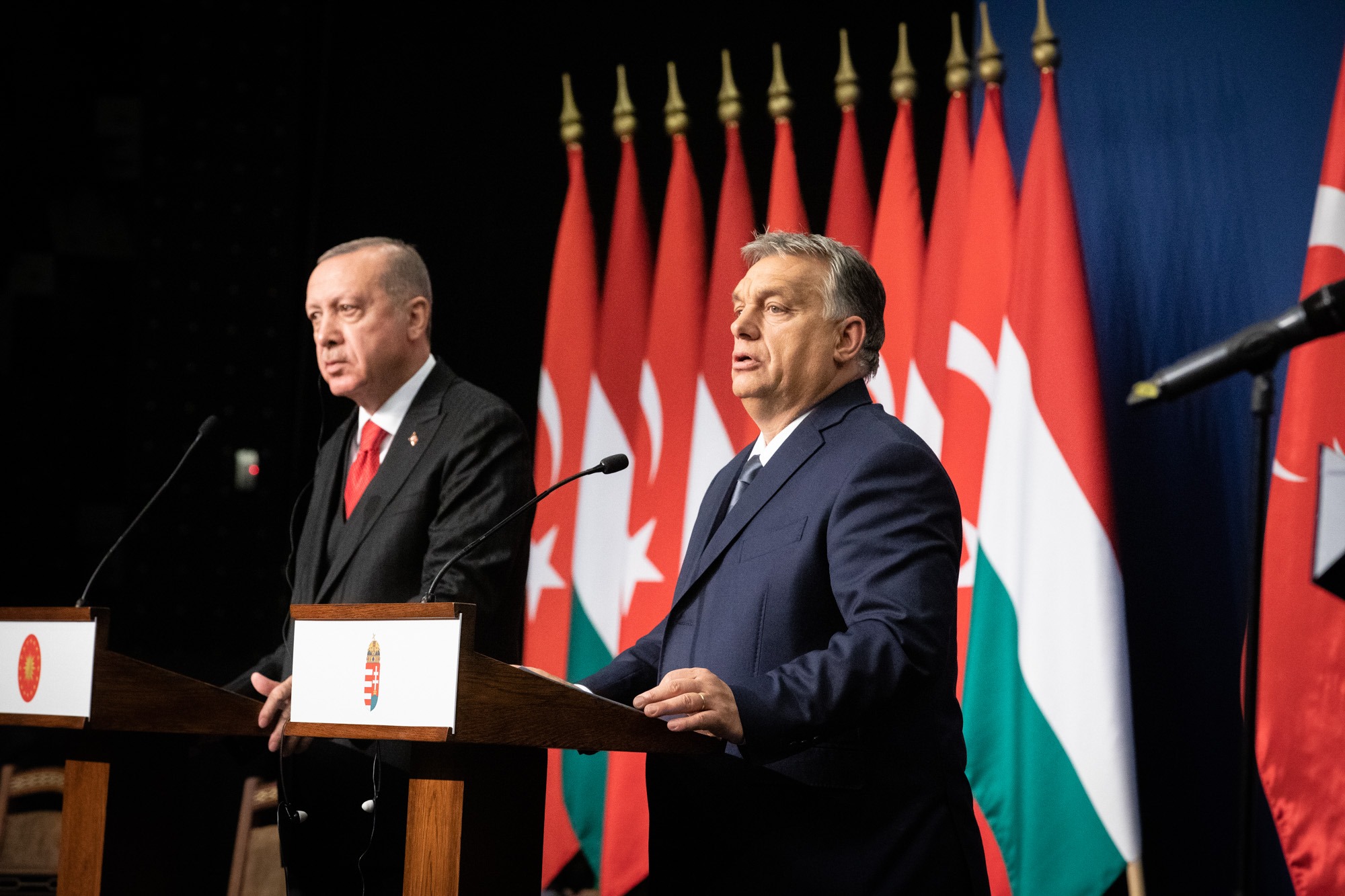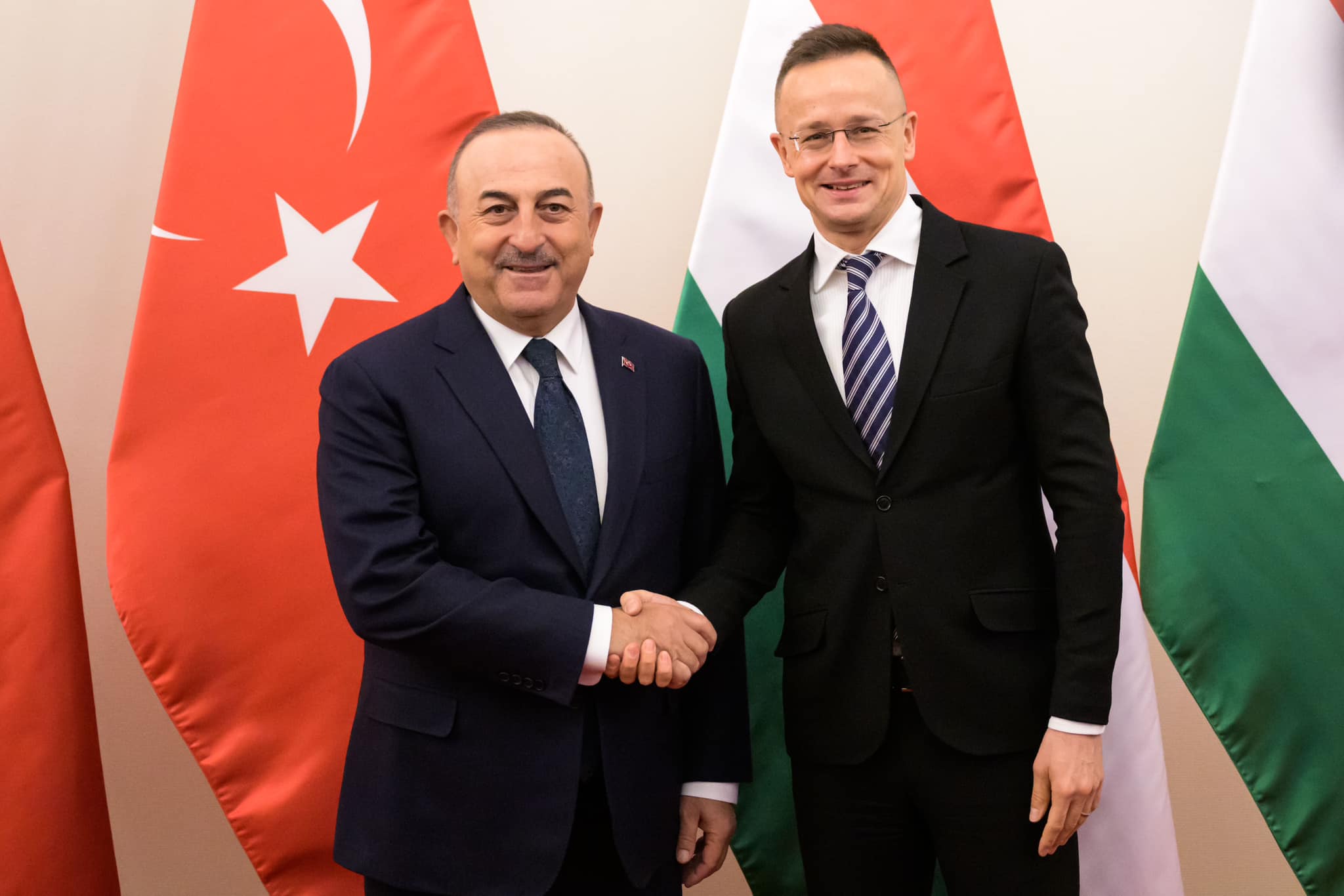Hungary would like the Turkish president to win the Nobel Peace Prize

Hungary and Türkiye are about to sign an agreement on “priority strategic cooperation”, as Türkiye has a key role in tackling the major challenges currently facing Hungary, Péter Szijjártó, the minister of foreign affairs and trade, said on Tuesday, after talks with his Turkish counterpart, Mevlut Cavusoglu.
Szijjártó told a joint press conference that Türkiye’s role in tackling global challenges had grown in recent years. Regarding the war in Ukraine, Szijjártó said that Hungary, as a neighbour of Ukraine, “feels all negative effects of the war gravely and palpably”, so it has a vested interest in peace. “Unfortunately, we must note that very few in the Transatlantic world … talk about or act for peace,” he said.
Speaking of peace “requires courage, as it brings on the relentless criticism from the liberal mainstream, which paints those involved as Putin’s allies, Russophiles and Kremlin propagandists,” he said. Referring to an agreement on restarting grain deliveries from Ukraine, Szijjártó said Türkiye’s successful mediation had shown that negotiation was the only way to end the war. He noted that Attila Tilki, a lawmaker of ruling Fidesz, is a member of a council within the Organisation of Turkic States that has recommended Turkish President Recep Tayyip Erdogan for the Nobel Peace Prize. Erdogan, he added, was the only successful negotiator in respect of the war so far.
Türkiye is also key to handling the energy supply crisis hitting Europe and Hungary. The TurkStream pipeline remains the only east-west pipeline on the continent operating at full capacity, he said. Diversification, a key concept for energy security in the future, is dependent to a large extent on Azeri resources which would also be delivered via Turkiye, he said.
Talks are under way on increasing Hungary’s access to Turkish gas lines to deliver Azeri gas that way, he said. Meanwhile, Europe would be unable to handle another global challenge, illegal migration, without Türkiye, Szijjártó said.
Hungary is under significant pressure: Hungarian authorities have thwarted 260,000 attempts at illegal entry last year only, he said. He called on the international community to enable Syrian refugees in Türkiye to return to their homelands. “That would be key to Türkiye’s peace, stability and calm, but also an important European measure against migration,” he said.
Elevating the level of cooperation between Hungary and Türkiye would help Hungary tackle all three challenges, Szijjártó said. The agreement could be signed “at the next high-level meeting”, he said. Responding to a question on the NATO integration of Finland and Sweden, Szijjártó said the Hungarian parliament will table the ratification document in February. At the same time, he said he would “not rush Türkiye on the issue, as Hungary never rushes other countries on matters unrelated to Hungary.” He called burning of the Koran at a Swedish protest was “unacceptable”. The Swedish statement that the gesture was an act protected by the principle of free speech was “stupid”, he said. “Countries looking to join NATO with Turkish support should act more carefully,” he said.
Source: MTI



You’ve got to be kidding. Alfred Nobel was a Swede.
@Gary Carpenter:
You took the words right out of my mouth (ie. “You’ve got to be kidding”).
Since when does our FM, or his boss become “Hungary”?
Since when am I, since when is my country, a Turkic State? I was so sure that our language is of Uralic/Finno-Ugric origins.
Does the Ottoman Turkish invasion now make us a “Turkic State”?
Next year, will Recep Tayyip Erdoğan reciprocate this gesture by nominating our own PM for the Nobel Peace Prize for his corageous efforts in fighting against the the big bad EU, George Soros, NGO’s and those “nasty” refugees who are dead-set on “invading” our little utopia/paradise/shangri-la?
Can’t be any worse than Henry Kissenger or Barrack Obama being nominated for the Nobel when both those US politicians were involved in wars (Kissenger and Vietnam and Barrack Obama and NATO intervention in Libya).